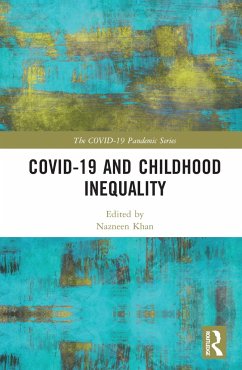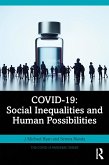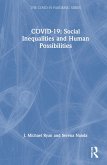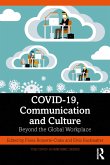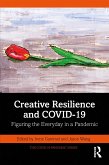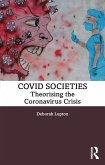The COVID-19 pandemic and the global response to it have disrupted the daily lives of children in innumerable ways. These impacts have unfolded unevenly, as nation, race, class, sexuality, citizenship status, disability, housing stability, and other dimensions of power have shaped the ways in which children and youth have experienced the pandemic. COVID-19 and Childhood Inequality brings together a multidisciplinary group of child and youth scholars and practitioners who highlight the mechanisms and practices through which the COVID-19 pandemic has both further marginalized children and exacerbated childhood disparities.
Featuring an introduction and ten chapters, the volume "unmasks" childhood inequalities through innovative, real-time research on children's pandemic lives and experiences, situating that research within established child and youth literatures. Using multiple methods and theoretical perspectives, the work provides a robust, multidisciplinary, and holistic approach to understanding childhood inequality as it intersects with the COVID-19 pandemic, particularly in the USA. The chapters also ask us to consider pathways toward resilience, offering recommendations and practices for challenging the inequities that have deepened since the entrée of SARS-CoV-2 onto the global stage.
Ultimately, the work provides a timely and vital resource for childhood and youth educators, practitioners, organizers, policymakers, and researchers. An illuminating volume, each chapter brings a much-needed focus on the varied and exponential impacts of COVID-19 on the lives of children and youth.
Featuring an introduction and ten chapters, the volume "unmasks" childhood inequalities through innovative, real-time research on children's pandemic lives and experiences, situating that research within established child and youth literatures. Using multiple methods and theoretical perspectives, the work provides a robust, multidisciplinary, and holistic approach to understanding childhood inequality as it intersects with the COVID-19 pandemic, particularly in the USA. The chapters also ask us to consider pathways toward resilience, offering recommendations and practices for challenging the inequities that have deepened since the entrée of SARS-CoV-2 onto the global stage.
Ultimately, the work provides a timely and vital resource for childhood and youth educators, practitioners, organizers, policymakers, and researchers. An illuminating volume, each chapter brings a much-needed focus on the varied and exponential impacts of COVID-19 on the lives of children and youth.
Khan's timely collection of essays helps us understand the true losses children, youth, and their caretakers are forced to reckon with under COVID-19. Contributing scholars shine a spotlight (as the pandemic does) on gender, race, class, health, educational, and digital inequalities that were already far-reaching in global childhood; however, there is hope in children's agency and activism and a heightened imperative to work toward true human connection and, ultimately, real social change.
Ingrid E. Castro, Professor of Sociology, Massachusetts College of Liberal Arts, USA
The COVID-19 pandemic has undoubtedly disrupted the daily lives of children across the globe. COVID-19 and Childhood Inequality offers a powerful, empirical, multidisciplinary look at how children have experienced and interpreted social inequality within the context of a pandemic. From housing instability to online schooling to access to health care to detention centers' responses to family dynamics and beyond, this book provides rich insights that can help us all think more carefully about childhood inequality both during a pandemic and in the eventual aftermath of one.
Margaret A. Hagerman, Associate Professor of Sociology, Mississippi State University, USA
Ingrid E. Castro, Professor of Sociology, Massachusetts College of Liberal Arts, USA
The COVID-19 pandemic has undoubtedly disrupted the daily lives of children across the globe. COVID-19 and Childhood Inequality offers a powerful, empirical, multidisciplinary look at how children have experienced and interpreted social inequality within the context of a pandemic. From housing instability to online schooling to access to health care to detention centers' responses to family dynamics and beyond, this book provides rich insights that can help us all think more carefully about childhood inequality both during a pandemic and in the eventual aftermath of one.
Margaret A. Hagerman, Associate Professor of Sociology, Mississippi State University, USA

